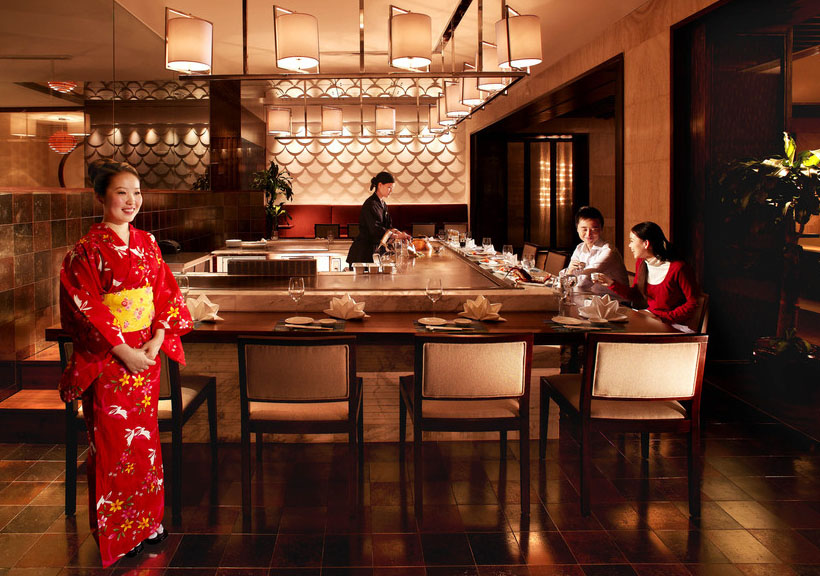 我对差的客服简直深恶痛绝。最让我难以忍受的一点是公司只注重自己认为重要的东西,他们所遵循的规矩竟丝毫不顾客户的感受。
我对差的客服简直深恶痛绝。最让我难以忍受的一点是公司只注重自己认为重要的东西,他们所遵循的规矩竟丝毫不顾客户的感受。
毋庸置疑,公司本该清楚自己的位置,知道自己应该代表谁的利益,这才是一个成功的公司应该做的,即竭尽全力维护自己的品牌形象。但当一个公司过于关注自以为是的品牌价值,却忽视了客户的直接感受的话,那么这家公司迟早要出问题。
我自己就亲身经历过这种事情。某晚,我与几个客户一起去纽约东汉普顿区一家名叫“东汉普顿烧烤”的餐厅用餐。这家餐厅装修精美,灯光恰到好处,很符合审美标准——看来餐厅主人的确是想为前来用餐的客人提供一个别致、高雅的环境。我们总共有11个人,于是服务员把我们带到2张圆桌旁,两张桌子相距约10英尺远。因为我们当天心情都非常好,大家就想坐在一起聊天,因此我们想让服务员帮我们把两张桌子拼成一张大桌子。这本来是很简单的一件事,并且只须举手之劳就能让客人满意。
但是,几分钟后,餐厅经理却过来告诉我们不能这样做。她的原因是这些桌子的位置都是提前安排过的,以确保每个桌子上的客人都能享受到餐厅精心处理过的灯光。因此,为了不破坏灯光效果,他们从没有动过桌子。尽管我们对她说真的不在乎什么灯光效果,只需要所有人能坐到一张桌子上就可以了,但她仍然不肯,说这样是不允许的。
大家不要误以为是我在刁难服务员,因为我知道什么样的要求是可行的,什么是不可行的。如果他们拒绝我真的有实质性的原因,比如“您的要求恐怕让我们无法服务好您”、“您的要求会给其他客户造成不便”或者“我们没有权利按照您的要求去做”——那样的话,我们也就没什么好说的了。(我自己的工作中也经常会遇到不能满足客户要求的情况,但我们会说“对不起,我们无法做到您所要求的,但我们会尽量让您满意,也许我们还有别的选择。”)
但是,在这件事的整个过程中,没有“我得确认一下能不能按照您的要求做”或“真的很抱歉,我来看看有没有别的解决办法”,有的只是“不行,我们不想这样做,因为我们不想这样做”
对此事,我们那天虽然表现得很有风度,餐厅的食物也的确很不错,但我想我以后一定不会再来这家餐厅了。他们的意思很明显:对他们来说,餐厅的灯光比来用餐的客人的感受还要重要。
悲哀的是这种情况在生活中并不少见。作为一个客人,经常被告知有些要求无法被满足的原因,竟是以前从来没有这么做过。
难道这些公司——尤其是那些成功与否完全取决于每位客人用餐体验的餐饮公司,忘了客服对它们的重要程度了吗?
I really really hate bad customer service. One big pet peeve: when companies value their own too-precious sense of themselves and their rules over the desires and convenience of their customers.
Certainly, companies should have a clear sense of who they are and what they stand for; a clear brand. And they should make every effort to deliver on their brand promise. But when an organization cares more about what they think their brand is than about how their customers experience them…well, they’ve got a problem.
Case in point: tonight I went to dinner with a client group at a restaurant in East Hampton, New York called East Hampton Grill. Very beautifully designed; nice lighting, lovely aesthetic – they were definitely wanting to create a specific, high-end impression. There were eleven of us, and they showed us to two round tables, set about 10 feet apart. We had just come from a great day, with everyone very much involved in one big conversation, and we wanted to keep that going, so we asked our server if we could pull the two tables together and make them, in effect, one large table. It seemed simple – and would have made us, the customer, very happy.
In a few minutes, the manager came by and told us that it wasn’t possible: they had the tables arranged so that each one would be lit in a certain way, and so they never move the tables, in order not to compromise the lighting. “We don’t really care about the lighting,” we responded, “We just want to be able to see and talk to one another. We’d like to move the tables 3 or 4 feet closer together.” No, she told us. You can’t; we don’t allow it.
Now, don’t get me wrong, I understand if a request simply isn’t feasible. If they had said something substantive: “Your request will make it hard to serve you well,” or “Your request will inconvenience other customers,” or “We don’t have the capability to accommodate your request” – that would have been OK with us. (I fairly often have to say to my clients some version of, “I’m so sorry, we aren’t able to do what you’re asking and still give you the outcome you want; let’s look for an alternative.”)
But in this case there was no “Let’s see if we can make this happen,” or “I’m terribly sorry we can’t do that – let’s figure out some other way to meet your need.” It was just “No. We don’t want to do that, because it’s not what we want to do.”
We were pretty gracious about it, and the food was quite good. But I will never go back to that restaurant again. They made it clear: their lighting scheme was more important to them than my happiness as a customer.
This is not a rare occurrence, sadly. As a customer, I’m quite often told that I can’t get something I want simply because their pre-existing rules say I can’t.
How do organizations – especially companies like restaurants, that are so clearly dependent for their success on the individual customer experience they provide – forget their priorities to this extent?
What would you recommend to companies to help them remember that satisfied customers are their most important goal?
 我对差的客服简直深恶痛绝。最让我难以忍受的一点是公司只注重自己认为重要的东西,他们所遵循的规矩竟丝毫不顾客户的感受。
我对差的客服简直深恶痛绝。最让我难以忍受的一点是公司只注重自己认为重要的东西,他们所遵循的规矩竟丝毫不顾客户的感受。
